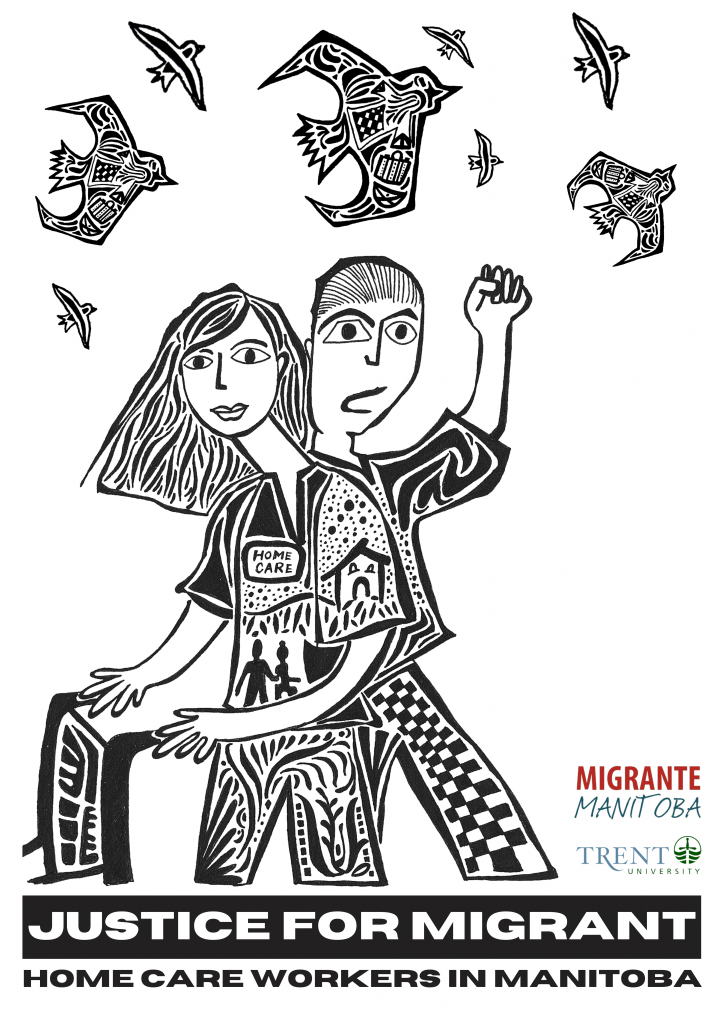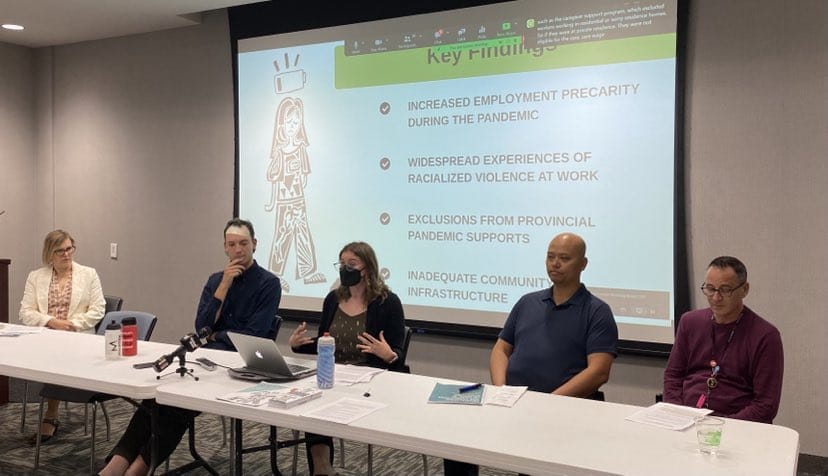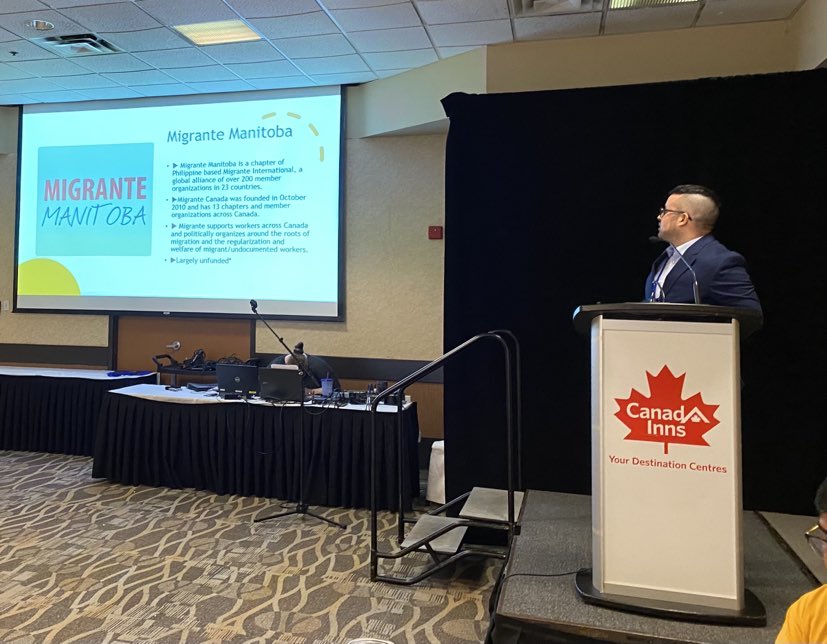
This community-engaged project partners with migrant justice group Migrante Manitoba to identify key policy issues impacting Manitoba-based im/migrant home care workers and documents their experiences providing essential, direct care to older people during the COVID-19 pandemic. The project is funded by a grant from the Social Sciences and Humanities Research Council.
Project Recommendations
1. Improve working conditions for home care workers in Manitoba – Some of the most difficult challenges im/migrant workers told us about can be addressed by tackling the working conditions of all care workers in Manitoba. Basic provisions like living wages, legislating 10 paid sick days, vacation days, job security, and benefits will help recruitment and retainment. We also recommend a mandatory registry of all home care employers to gain data on the sector for policy planning and advocacy. For im/migrant home care workers in particular, targeted efforts to address employment standards violations as well as racialized harassment and violence must be implemented. In the long-term, infrastructure such as
a community-driven workers’ advocacy organization, are neededCurb privatized home care in Manitoba
2. Curb privatized home care in Manitoba – Increasingly, im/migrant home care workers are moving away from public toprivate sector care jobs because of burn out and the lack of full-timeemployment status, flexibility, and low wages in the public sector. We need tostrengthen the public home care sector and further regulate the private sectorto decrease its expansion and the associated erosion of working conditions forim/migrants.
3. Enhance and guide the development of formal supports and entitlements using an intersectional framework – Many vulnerable communities, such as women, im/migrant and racialized workers, and people working for private employers, were excluded from the provincial government’s pandemic policy supports. Intersectional policy planning is critical to ensure that policy actions actually target and benefit those who need them most. This includes regularization of migrant workers, and targeted and intersectional approaches to settlement supports.
Recent Publications
- Hande, M.J. & Nicholson, L. (2023). Immigrant workers and home care. Winnipeg Free Press.
- Nicholson, L., Hande, M.J., and Migrante Manitoba. (2023). Justice for Im/Migrant Home Care Workers in Manitoba. Canadian Centre for Policy Alternatives – Manitoba.
- Project Booklet
- Project Pamphlet
- Hande, M.J. “Im/migrant home care workers in Manitoba during the pandemic: Exploitation, precarity, and resistance.” Invited presentation for the MFL’s Occupational Health Centre, Winnipeg, September 20.
- Hande, M.J., Nicholson, L., Yavuz, M., Marcelino, D. and Rodriguez, S. (2022). Migrant home care workers in Manitoba: An invisible and critically underserved pillar of Manitoba’s pandemic response. Carework Network Responds.
- Hande, M.J., Marcelino, D., Rodriguez, S., and Yavuz, M. (2021). Migrant care work and the geopolitics of ‘aging in place.’ Ethnorama News Winnipeg. 3(9): 14-15.
Recent Presentations

